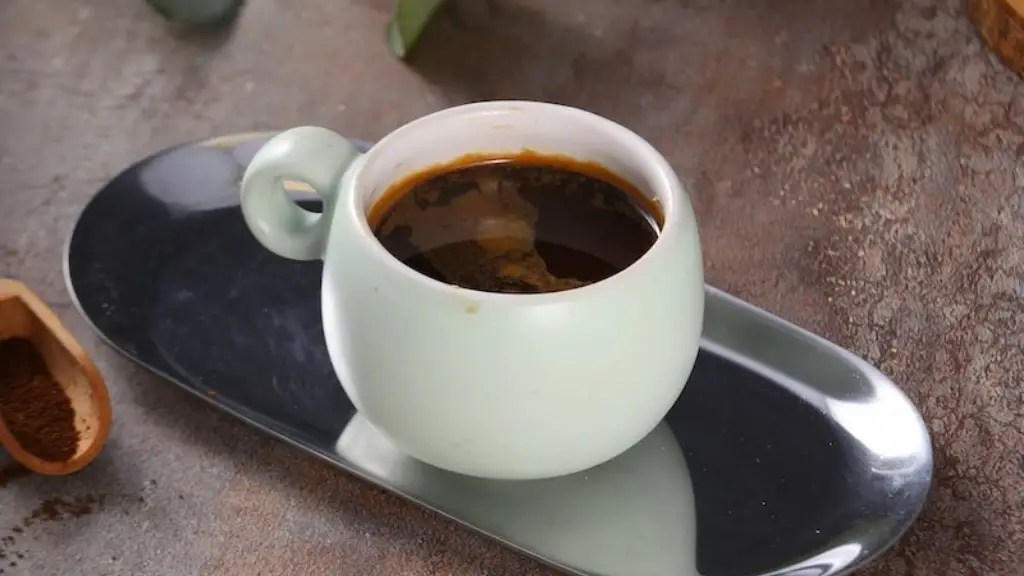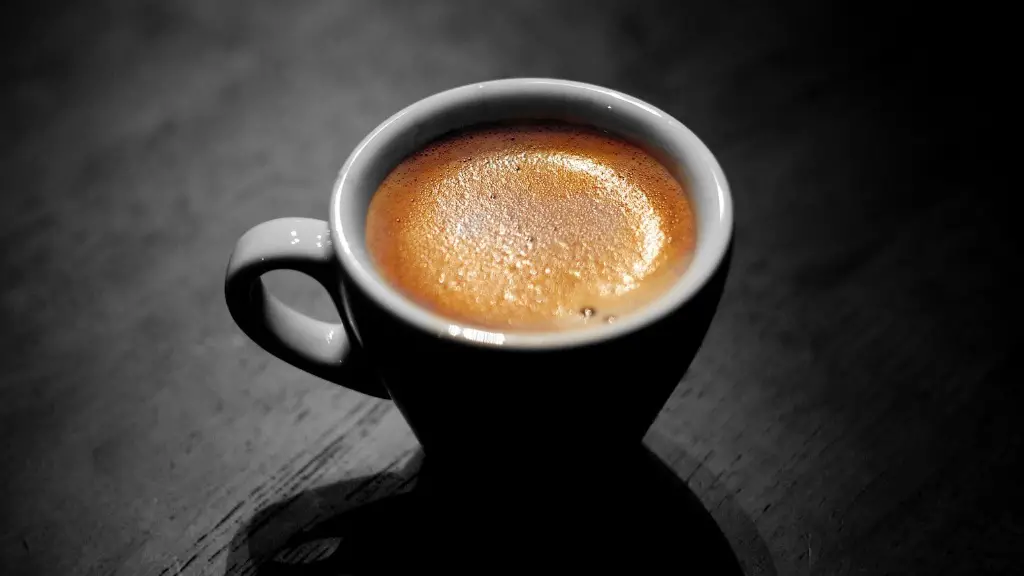Coffee and its Effect on the Digestive System
Coffee is one of the world’s most popular beverages, consumed by millions and loved by many. But have you ever wondered why some people feel the sudden urge to poop after drinking a cup of coffee? It turns out that coffee has an effect on the digestive system and this can help us to better understand why you need to poop after drinking a cup of coffee.
Caffeine is a stimulant – it changes the way the body releases hormones, which can influence the digestive system and can even speed up the pace at which your intestine processes food. When coffee is ingested, acetylcholine – a neurotransmitter – is released from nerve endings and sends a signal to the smooth muscles to contract. This helps to move food through the body more quickly.
On top of the action of the neurotransmitters, coffee stimulates gastrin – an enzyme that accelerates intestinal transit and allows you to have a bowel movement sooner. This is why people often feel like they have to go to the bathroom after drinking coffee. It’s not necessarily a bad thing, as it can help to expel toxins from your body, flush out excess waste and generally regulate your digestive system.
Drinking coffee can also reduce the risk of colon cancer by encouraging the production of the enzyme CYP1A2. This enzyme breaks down bile acids in the gut, which can prevent the absorption of carcinogens present in food. Regular consumption of coffee can also prevent the formation of small fecal stones, resulting in better digestion and an easier bowel movement.
When it comes to understanding how drinking coffee affects your digestive system, it’s important to consider the other substances that are often found in espresso-based drinks. Cream, milk, and sugar all add to the complexity of coffee’s effect on the digestive system. Not only do they slow down the process of digestion, they can also contribute to the feeling of needing to poop after drinking coffee.
Most experts recommend that if you feel the need to go to the restroom after drinking coffee, it’s best to listen to your body and make sure to get rid of any excess waste. Regular consumption of coffee is not bad for the digestive system, as long as you practice moderation, drink plenty of water and make sure to eat a healthy, balanced diet.
Caffeine and Its Effects On Stomach Acid
Caffeine, one of the main components of coffee, has a direct effect on stomach acid levels. When caffeine is ingested, it increases the production of gastric acid, which in turn affects the speed at which food passes through the stomach. This is because caffeine stimulates the activity of the digestive organs and signals the stomach to release more acid. This makes digestion faster and more efficient.
The increase in stomach acid can also cause some people to experience heartburn or acid reflux. Despite this, the majority of people can still enjoy their morning cup without any adverse affects on their digestive system. As long as you drink moderately and consume coffee without sugar, cream or milk, it’s unlikely that you will experience any digestive discomfort.
The important thing to remember is that while coffee has some effect on the digestive system, it doesn’t necessarily mean that it is bad for you. On the contrary, it can stimulate the production of enzymes that can help your body to better digest food and remove toxins. So, the occasional cup of coffee should not be a cause for concern.
That said, it’s important to be aware of your own health, as certain medical conditions can be exacerbated by the effects of caffeine on the digestive system. So, if you’re prone to health issues such as GERD, IBS or ulcerative colitis, it might be worth speaking to your doctor first before adding coffee to your daily routine.
Nutritional Benefits
Coffee is more than just a flavorful stimulant, it is actually full of nutritional benefits that can be beneficial to your health in many ways. The polyphenols present in coffee are responsible for many of these benefits. These antioxidant compounds have been found to have antimicrobial, anti-inflammatory and anti-cancer properties.
Studies have found that coffee can help to reduce the risk of several chronic diseases, such as type 2 diabetes, heart disease and even stroke. It can also improve mental clarity and alertness, reduce fatigue and help to prevent cognitive decline. Coffee can also provide a good source of essential vitamins and minerals such as potassium, magnesium and B vitamins.
So, not only does coffee stimulate the digestive system and promote regular bowel movements, it is also rich in essential nutrients that can benefit your health. This is why, despite its potential to cause stomach acid problems and irritate an already sensitised digestive system, most doctors will agree that coffee can be an important part of a healthy and balanced diet.
Coffee and its Effects on the Body
Coffee can have positive and negative effects on the body, depending on the individual. It is widely accepted that moderate coffee consumption can be beneficial to physical and mental health, as the polyphenols present in the beverage can have protective effects on the cardiovascular system, support healthy brain functions and even reduce the risk of depression.
However, drinking too much coffee can lead to various health issues, such as increased heart rate, headaches, insomnia and even anxiety. It can also cause dehydration, as caffeine is a diuretic. So, if you do decide to drink coffee, make sure to stay hydrated and try to limit your consumption to moderate amounts to avoid the risk of side effects.
The same rules apply to caffeine in general. While regular consumption of caffeine can make you feel energised and alert, it’s important to remember that too much of anything can be harmful. So, if you’re feeling the urge to poop after drinking coffee, it’s best to listen to your body and seek medical advice if necessary.
Types of Coffee Drinks and Caffeine Content
When it comes to understanding the effects of coffee on the body, it’s important to consider the type of coffee that you’re drinking. Some espresso-based drinks, like lattes and cappuccinos, contain significantly more caffeine than regular black coffee. So, it’s important to consider the type of coffee that you’re drinking and the amount of caffeine that it contains.
Regular brewed coffee contains around 95mg of caffeine per 8-ounce cup, while espresso has around 65mg of caffeine per 1-ounce shot. Other espresso-based drinks such as cappuccinos, lattes, macchiatos and mochas can contain significantly more caffeine, depending on the kind and the size of the drink.
So, if you’re looking to limit your caffeine consumption, make sure to pick the right drink – a regular 8-ounce cup of black coffee will give you a moderate energy boost without the risk of over-consumption. It’s also worth noting that decaffeinated coffee still contains some caffeine, although usually in much lower amounts.
In Summary: Why Do We Poop After Drinking Coffee?
It’s not uncommon for people to experience the sudden urge to poop after drinking a cup of coffee. This feeling is caused by caffeine’s effect on the digestive system and the production of enzymes and hormones that can influence your intestinal transit. Drinking coffee can also be beneficial for your health, as it can provide essential nutrients, improve mental clarity, and reduce the risk of certain diseases.
Coffee, however, should be consumed in moderation. So, if you do feel the need to go to the restroom after drinking coffee, it’s best to drink plenty of water, practice moderation and make sure to eat a healthy, balanced diet.





